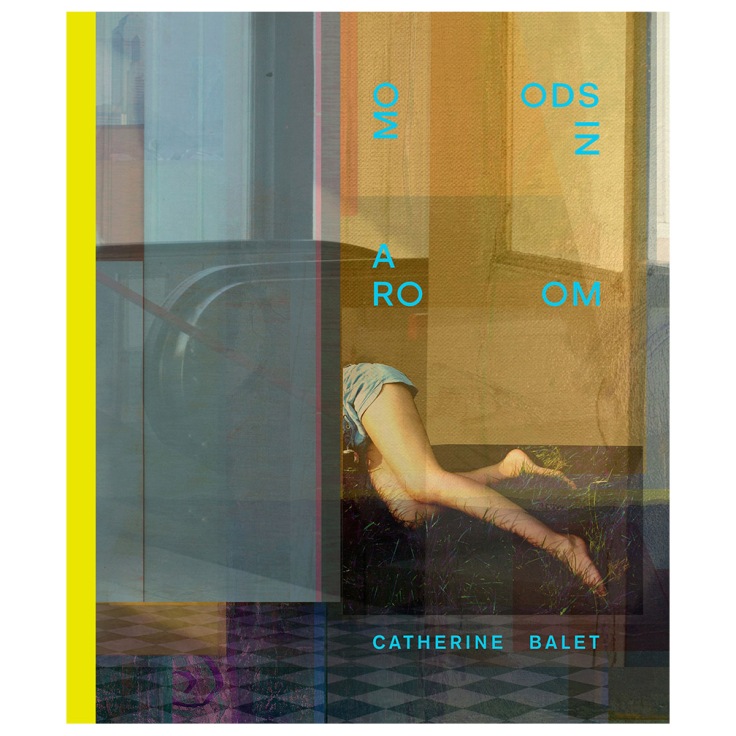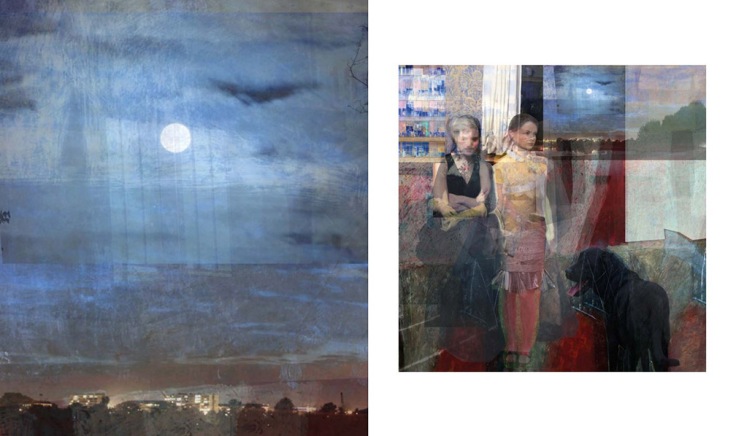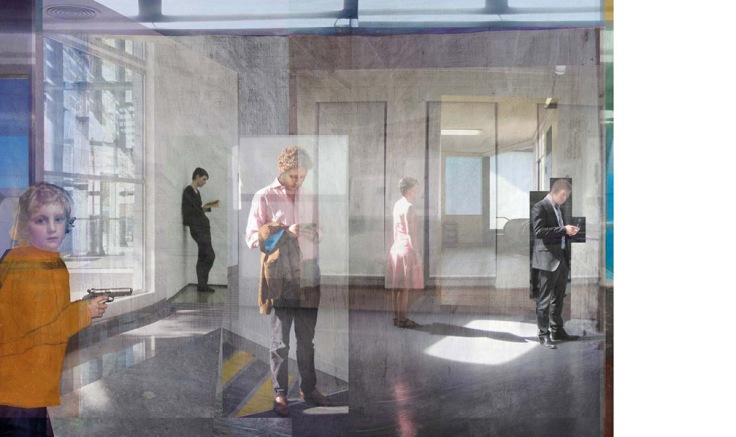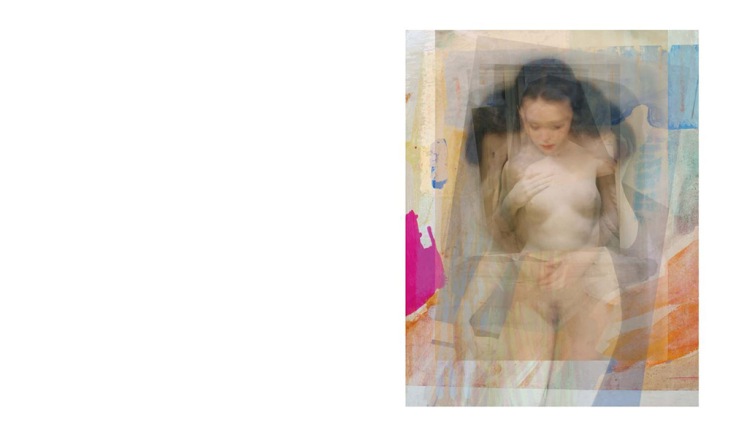
Review by Gerhard Clausing •
In these days of self-isolation we certainly have become more familiar with our rooms, and with the moods they might hold or generate. In photography, the concept of particular spaces and all that happens in them involves a visualization of past, present, and possibly future juxtapositions and permutations – memories of the past projected onto present awareness and expectations for the future. What are the possibilities?
In the past we have seen such techniques as ultra-long exposures by Alexey Titarenko and Michael Wesely, showing us the masses of people moving through St. Petersburg, or the wilting process of cut flowers stowed in a vase, or the slow construction of the MOMA building, images that recorded action lasting from a number of seconds to a number of years in a single exposure. We have also seen elaborate staged constructions such as the ones by Julie Blackmon, which feature sharply defined juxtapositions.
In this project by Catherine Balet, we observe a similar reality condensation process, but the technique here involves composing combinations of backgrounds and elements in a fashion that shows an imagined coexistence of figures and actions that are more ambiguous, in part because they are physically less distinct. There is a kind of intentional uncertainty about what is happening; this is achieved by combining sharply defined as well as motion-blurred or less clearly focused elements in a single image, thus creating an artistic simulation of possibilities that allows projection on the viewer’s part.
Public and private spaces, office buildings and residences show both leisure and busy-ness simultaneously; certain colors and elements also recur throughout the sequence of images. Take a look at the use of cool and warm colors in this project. Yellow and red break up what could otherwise be seen as the dreariness of blue-gray everyday existence. Some elements, such as an occasional youngster in a corner, sometimes even displaying a hint of violence, or a female stretched out on a bed or couch in what might be seen as a seductive pose or else perhaps merely exhaustion, are sample triggers for the viewer.
We see many elements and fragments that make up these images, and it is indeed an artistic portrayal of the way in which our reality and our imagination often merge. It is clearly helpful that Catherine Balet also has a strong background in painting, as the effect of these images takes us beyond the realm of mere photographs.
We see a layering that we do not customarily experience in straight photographic images; here point and counterpoint set up a dynamic tension that evokes responses from the viewers. In these arrangements Catherine Balet shows a different kind of social distancing, perhaps the loneliness of modern humans, in a surrealistic universe made up of snatches of our past, present, and future realities and fantasies.
The “room” concept can be seen as a metaphor for life itself. It holds our memories, our feelings, our moods and our thoughts – in other words, our very essence. The elements in the room form an associative merry-go-round; the viewer’s recollections are evoked by shapes, colors, and sizes – appearances and reappearances, changes and surprises – closeness, yet distance.
The effect is impressive: a dreamlike world of memories that causes the viewer to apply his or her own experience to the project, and this makes it a very personal photobook to spend some time on. A challenging project, well executed!
____________
Catherine Balet – Moods in a Room
Photographer/Artist: Catherine Balet (born in Paris; lives in Dordogne, France)
Publisher: Dewi Lewis, Stockport, England, UK; © 2020
Essay: Introduction by Fannie Escoulen, Curator
Language: English and French
Hardcover, sewn binding; 120 pages; 24.5 x 29 cm (9.75 x 11.5 inches); printed in Italy by EBS, Verona
Photobook Designer: Edith Bazin
____________









